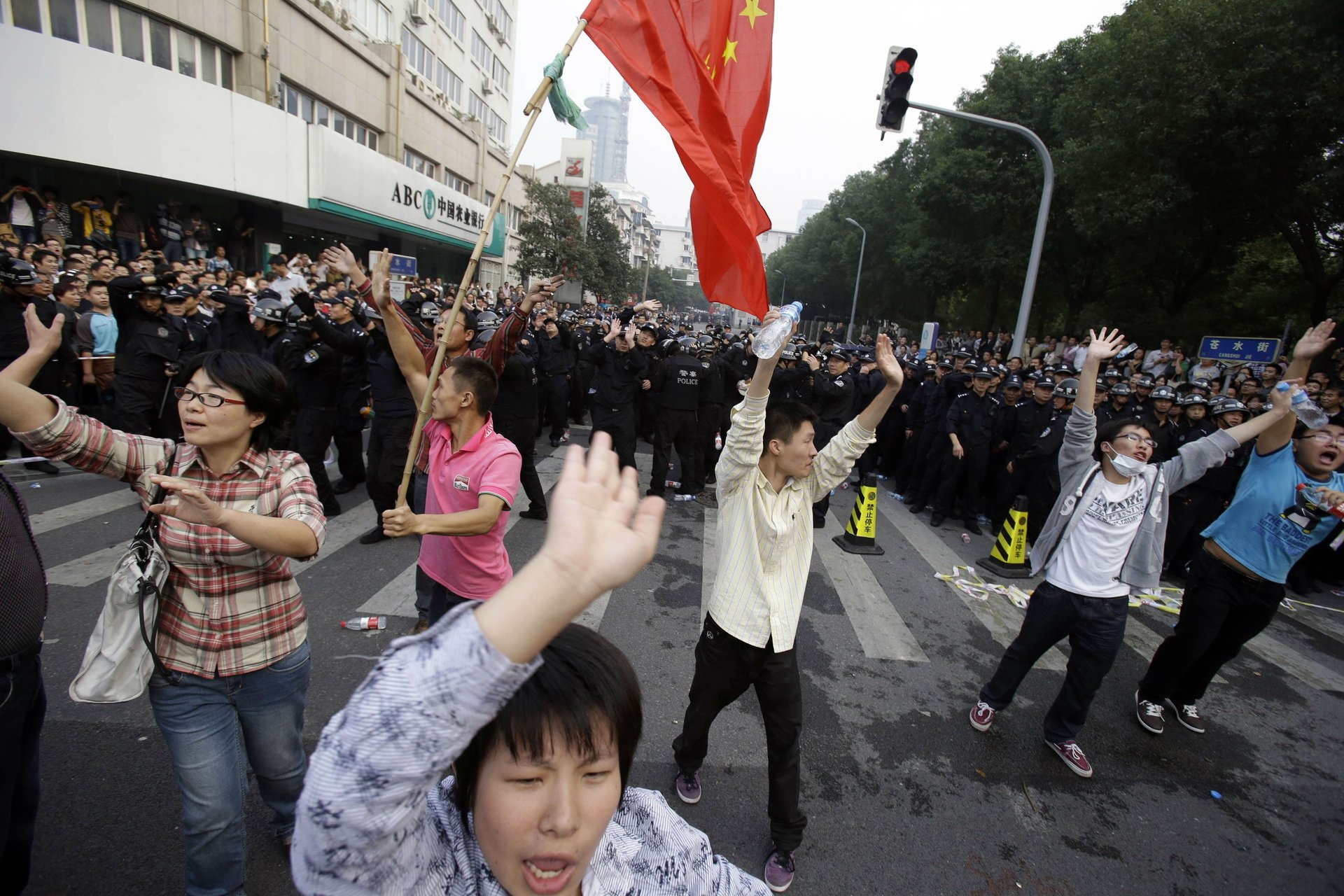Protests lead Beijing to halt petrochemical plant expansion
A little over a week before a new Chinese leadership is announced, Beijing has retreated from the expansion of a petrochemical plant in the face of public protests in the city of Ningbo and what experts say is a potential crisis of legitimacy.

A little over a week before a new Chinese leadership is announced, Beijing has retreated from the expansion of a petrochemical plant in the face of public protests in the city of Ningbo and what experts say is a potential crisis of legitimacy.
The decision on Oct. 28 to stop the plant expansion in Zhejiang province marks the government’s latest concession against rising public discontent with living standards, corruption and inequality. The number of such protests in China has risen 29% a year since the late 1990s, reports the official China Daily, quoting an Oct. 26 lecture by an unidentified expert before the Standing Committee of the National People’s Congress. Large percentages of Chinese believe that water and air pollution are very big problems in the country, according to a survey released Oct. 16 by the Pew Research Center. Pew said that 33% cited water pollution as a very big problem and 36% said the same about air pollution.
Michal Meidan, an analyst with Eurasia Group, says that the protests in Ningbo reflect the rise of a more demanding and vocal Chinese middle class. Beijing has managed thus far to deflect the blame onto local officials. But “over time, there will be increasing scrutiny of Beijing’s actions–economic, environmental and political–and unless the Party carries out some kind of reform (it can be symbolic and minimal, but must address these issues) it will face a growing legitimacy crisis,” Meidan said.
In Ningbo, some 200 protesters continued their demonstration Oct. 29 despite winning the concession. (Update: Quartz’s Lily Kuo says that although Chinese media have not carried reports of the protests, the news is all over the social network Sina Weibo, with terms like “Ningbo, add oil!”—which means “Go Ningbo!”—trending.)
The quick government action reflects a currently hyper-sensitive Beijing as a new Chinese leadership will be announced Nov. 8. “Certainly no government official wants protests in the street the week before the political transition begins,” Bernstein’s Michael Parker told me. “But signs of social unrest are always a sensitivity for the Chinese government, and if street protests work, expect more.”